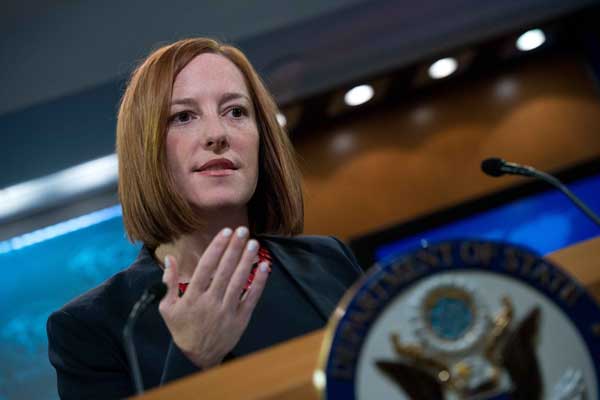The United States has expressed concern over election-related developments in Burundi and South Sudan.

The US has however welcomed the Democratic Republic of Congo’s announcement that presidential election is set for November 2016.
President Pierre Nkurunziza of Burundi could provoke “a strong reaction by many in Burundi” if he seeks a third term in office, a State Department official warned on Thursday.
A spokesman for Mr Nkurunziza was quoted as saying last week that the president does intend to run for a third term in elections scheduled to take place four months from now.
The country’s constitution could be interpreted as permitting a third term, the US official acknowledged in response to a query from the Nation Media Group.
But the official also cited “unambiguous language” in the Arusha Agreement signed in 2000 stating that “no one may serve more than two presidential terms.”
The Arusha accord is intended to prevent recurrence of civil strife in a country where hundreds of thousands have been killed in Hutu-Tutsi violence. Burundi has made “significant strides toward peace and reconciliation” since the signing of the accord, the US official noted.
“We believe adherence to the Arusha Agreement’s clear provision is important to ensuring that the upcoming elections are peaceful and free,” the official added.
“Stability and good governance are needed to attract investment and bring prosperity to Burundi.”
TRANSITIONAL GOVERNMENT
The State Department on Thursday also commented on the South Sudan government’s recent decision to cancel elections scheduled for June and extend President Salva Kiir’s term in office.
This move “would undermine the peace process” in South Sudan unless the warring sides reach agreement on formation of a transitional government, the US official said.
The government and armed opponents led by former Vice President Riek Machar have already agreed to a 30-month transitional government, the official noted. “Any next step should lead to starting the transitional process to establish a transitional government,” the US added.
Honouring agreements already made and negotiating further steps toward peace is “necessary for credible and inclusive elections to take place,” the official remarked.
In a statement on the DRC distributed to reporters on February 18, State Department spokeswoman Jen Psaki said the US welcomes the announcement that presidential elections are scheduled to be held on November 27, 2016.
The voting will offer the Congolese an opportunity to “further the democratisation of the country through regular, timely elections and what we anticipate as the country’s first peaceful transfer of power,” the spokeswoman said.
The statement implies that the US wants President Joseph Kabila to respect a provision in the DRC constitution barring him from seeking a third term in office.
Bloody protests took place in the DRC last month in response to legislation that could have had the effect of enabling President Kabila to remain in office for up to three more years. The proposal was subsequently scrapped.
“The United States renews its call for dialogue among all stakeholders to ensure a consensual process and for the DRC government to finalise its electoral budget,” Ms Psaki said in the statement issued on Wednesday.
Daily nation